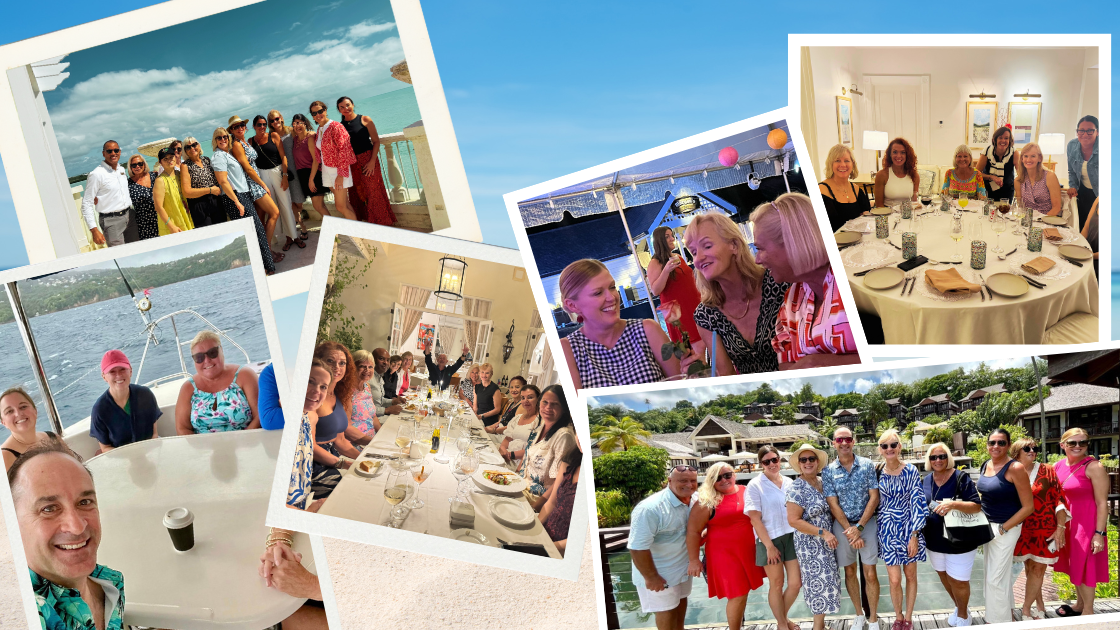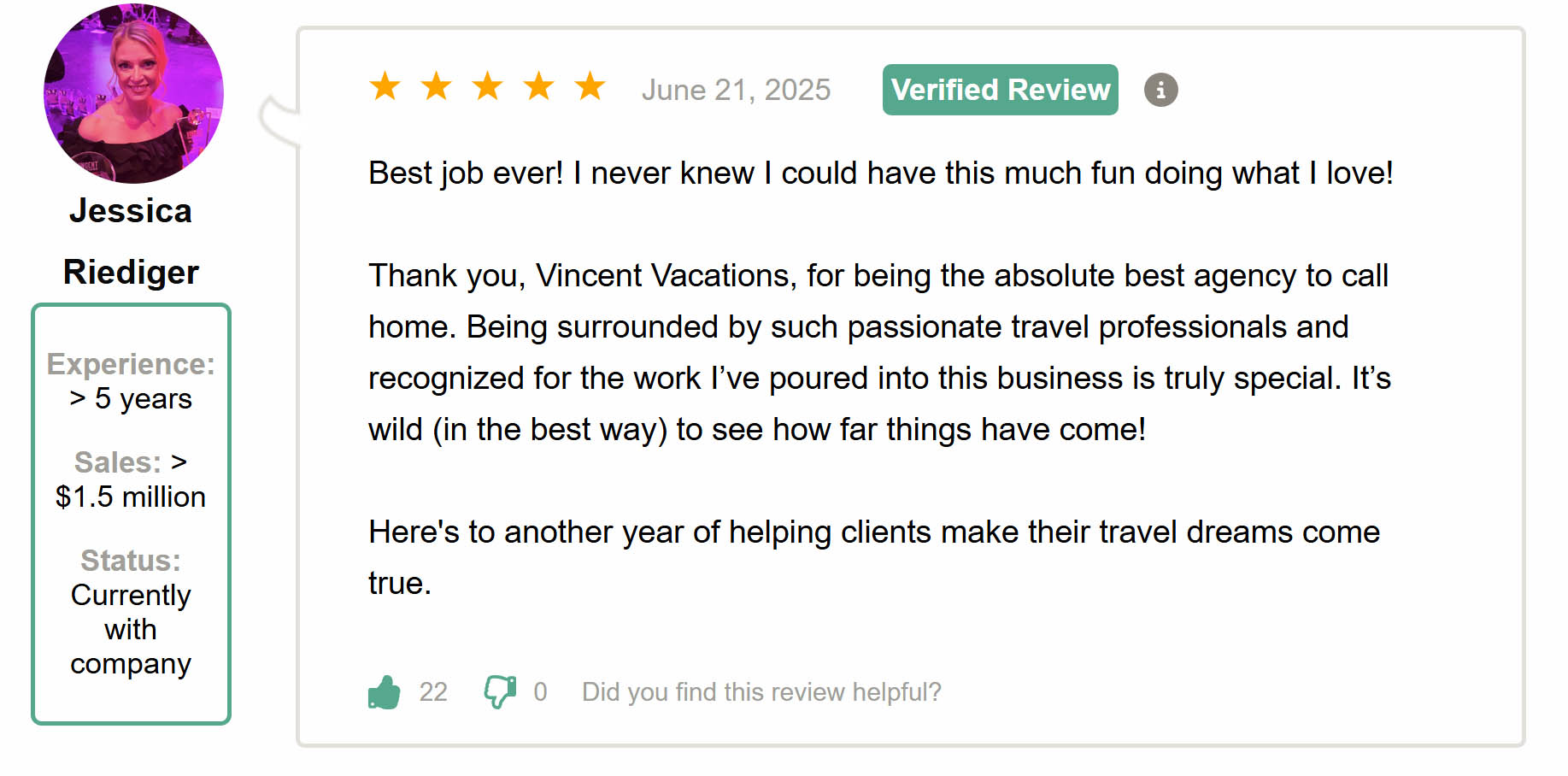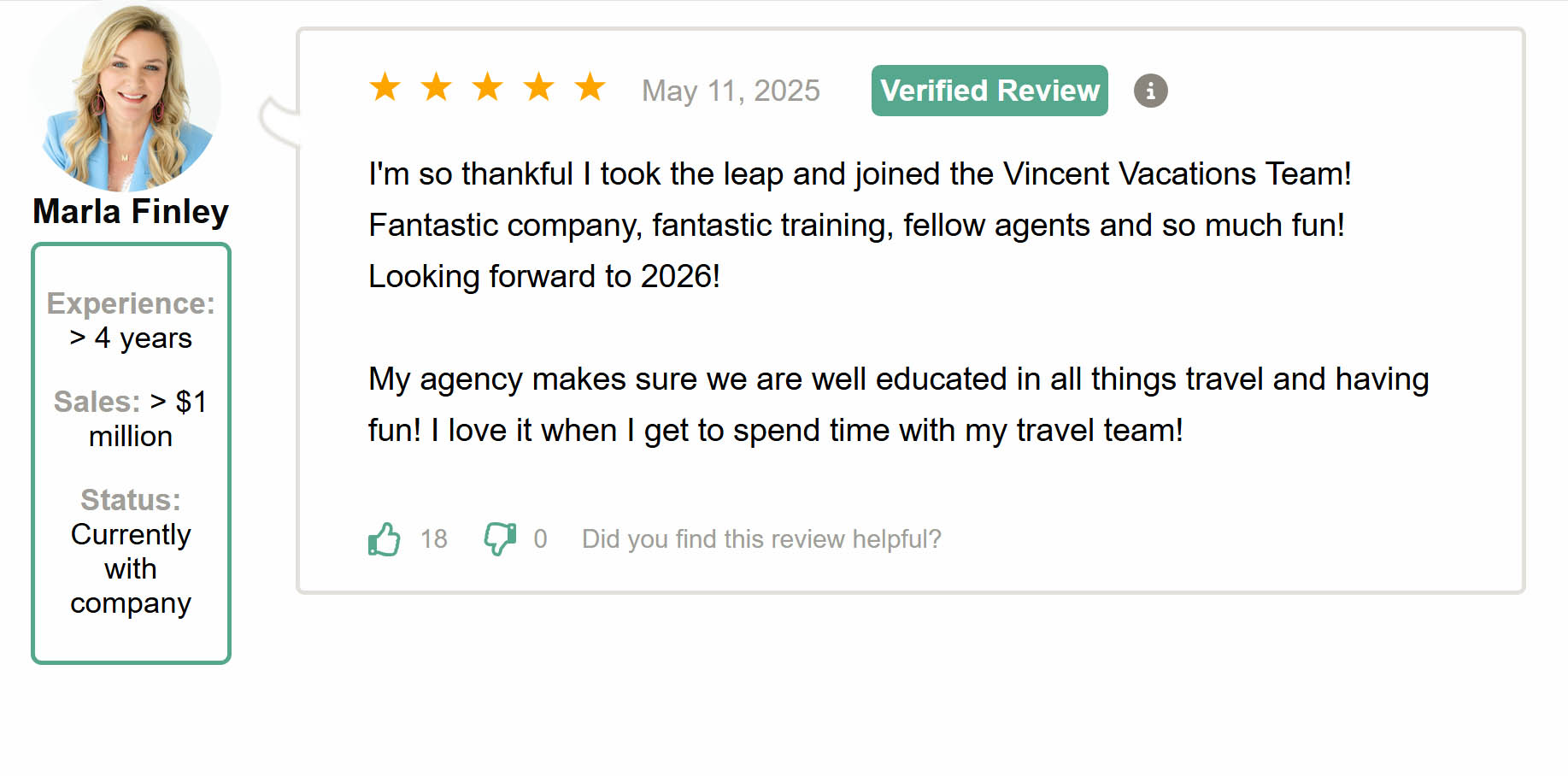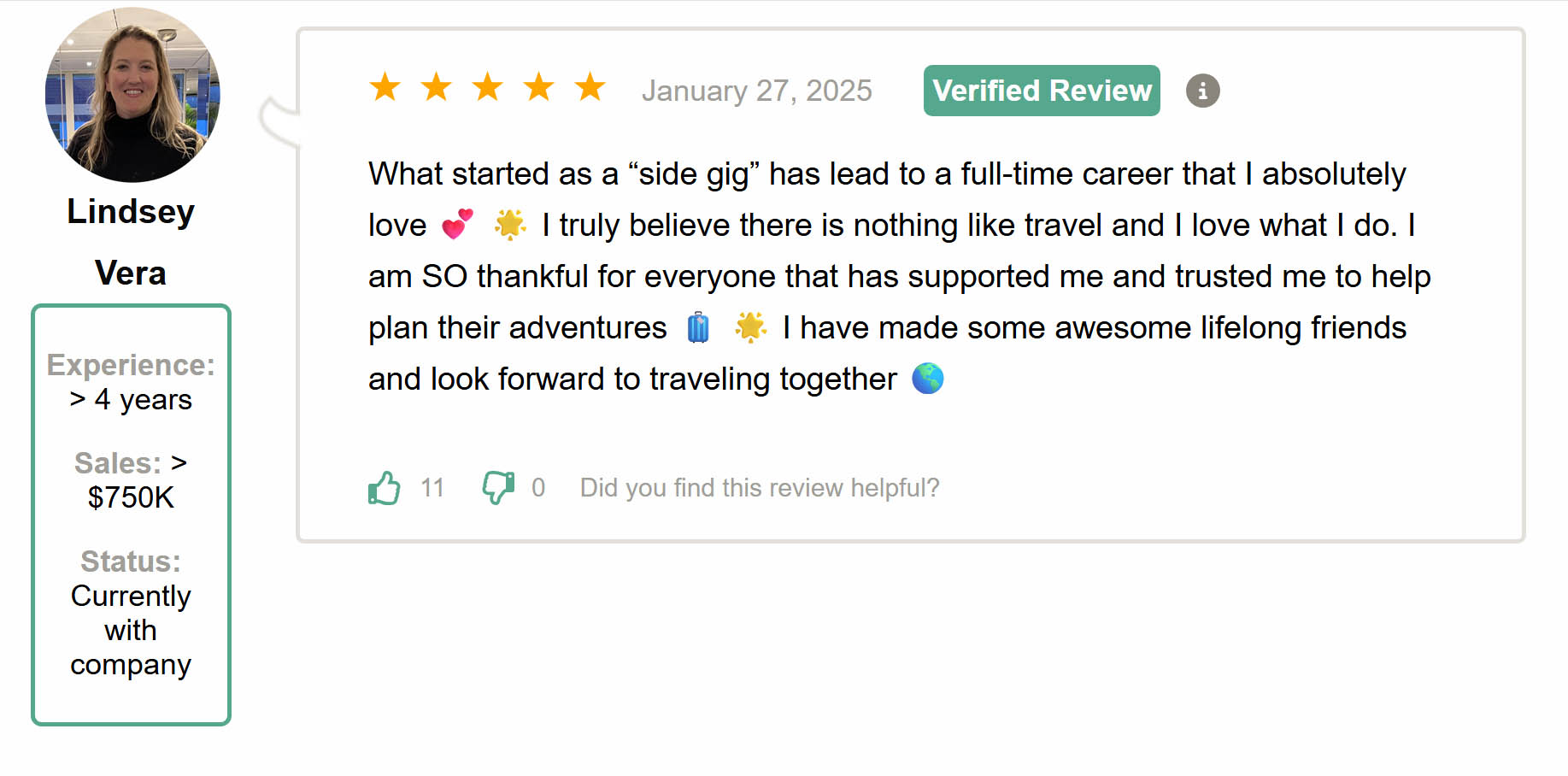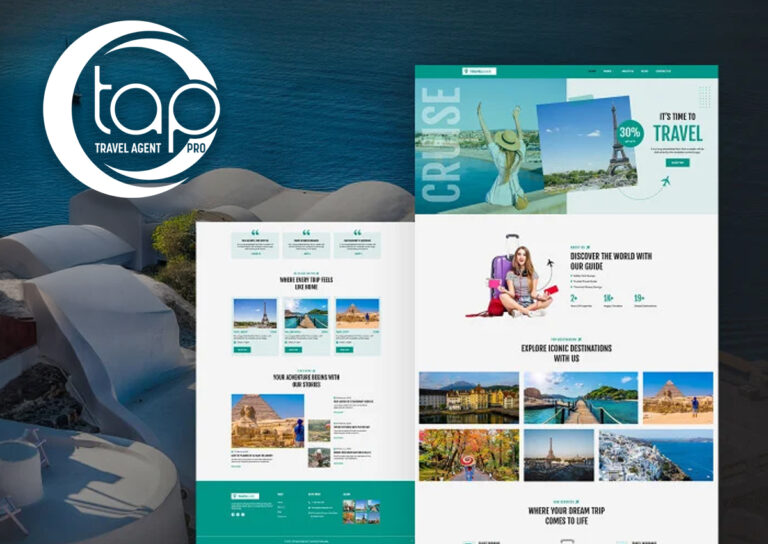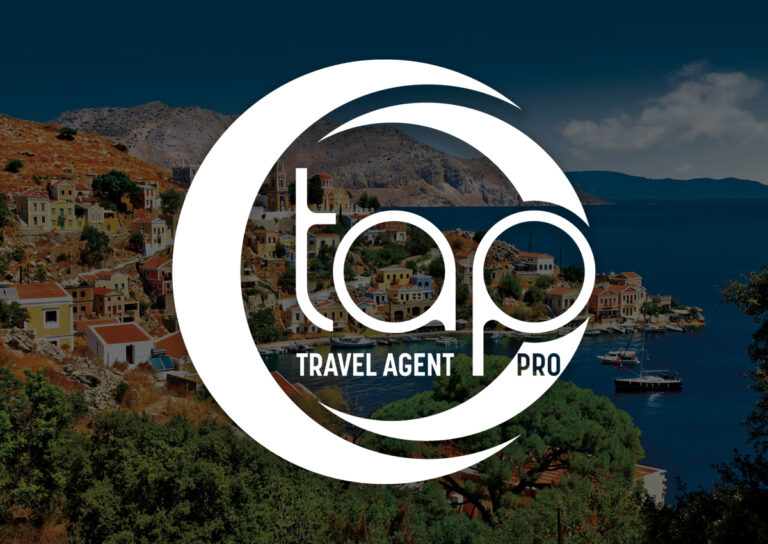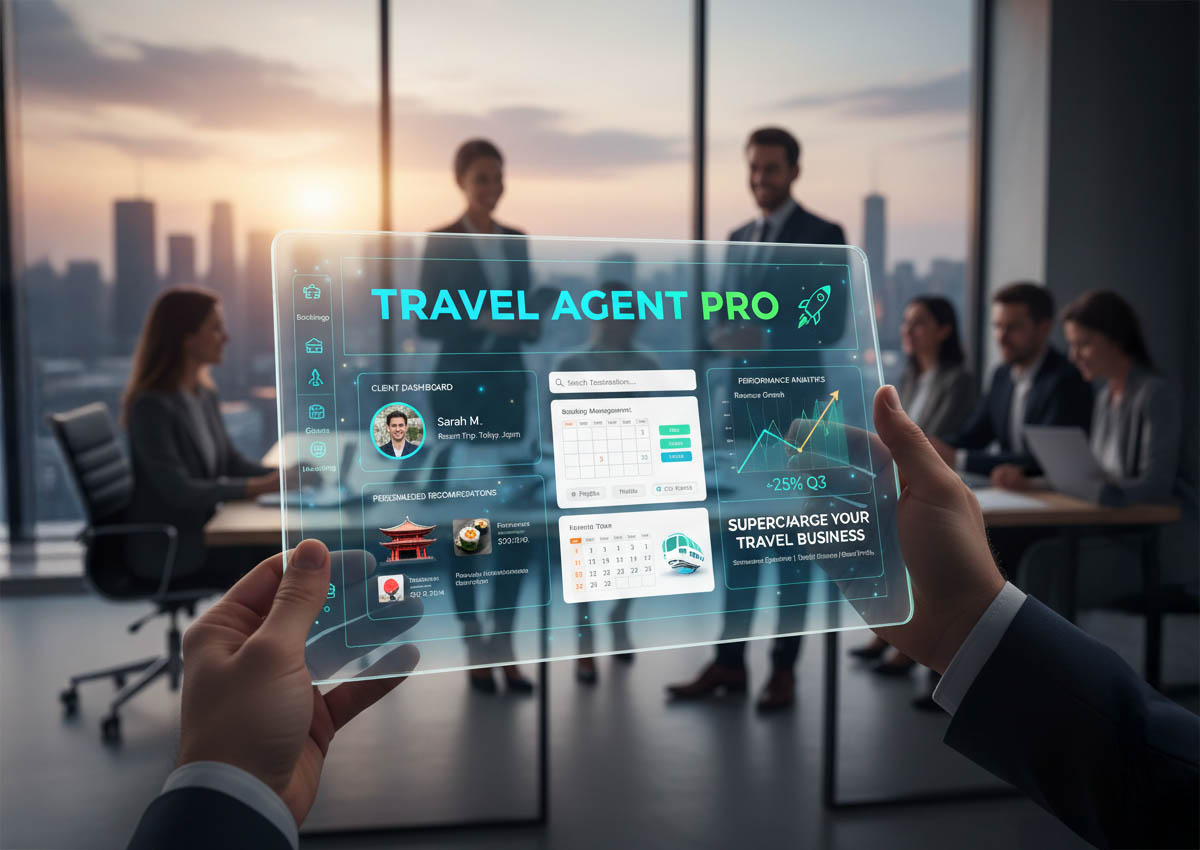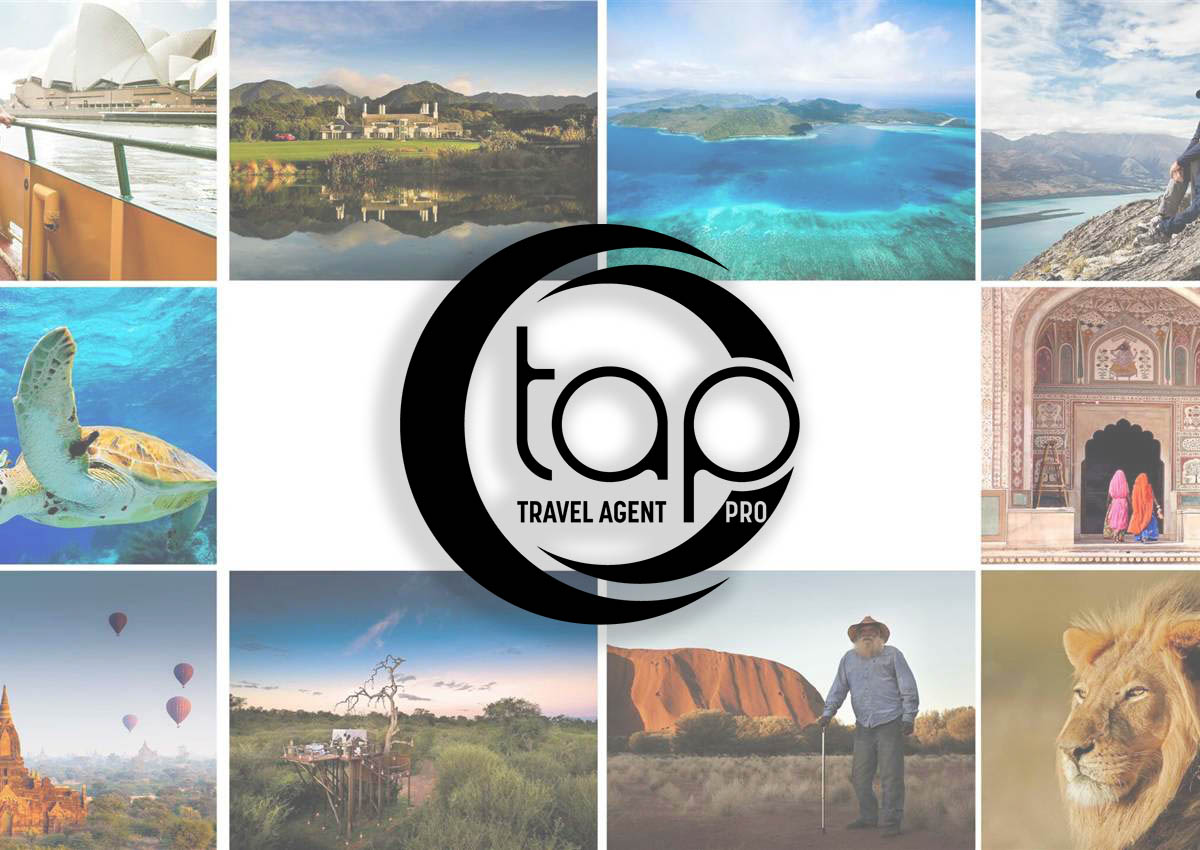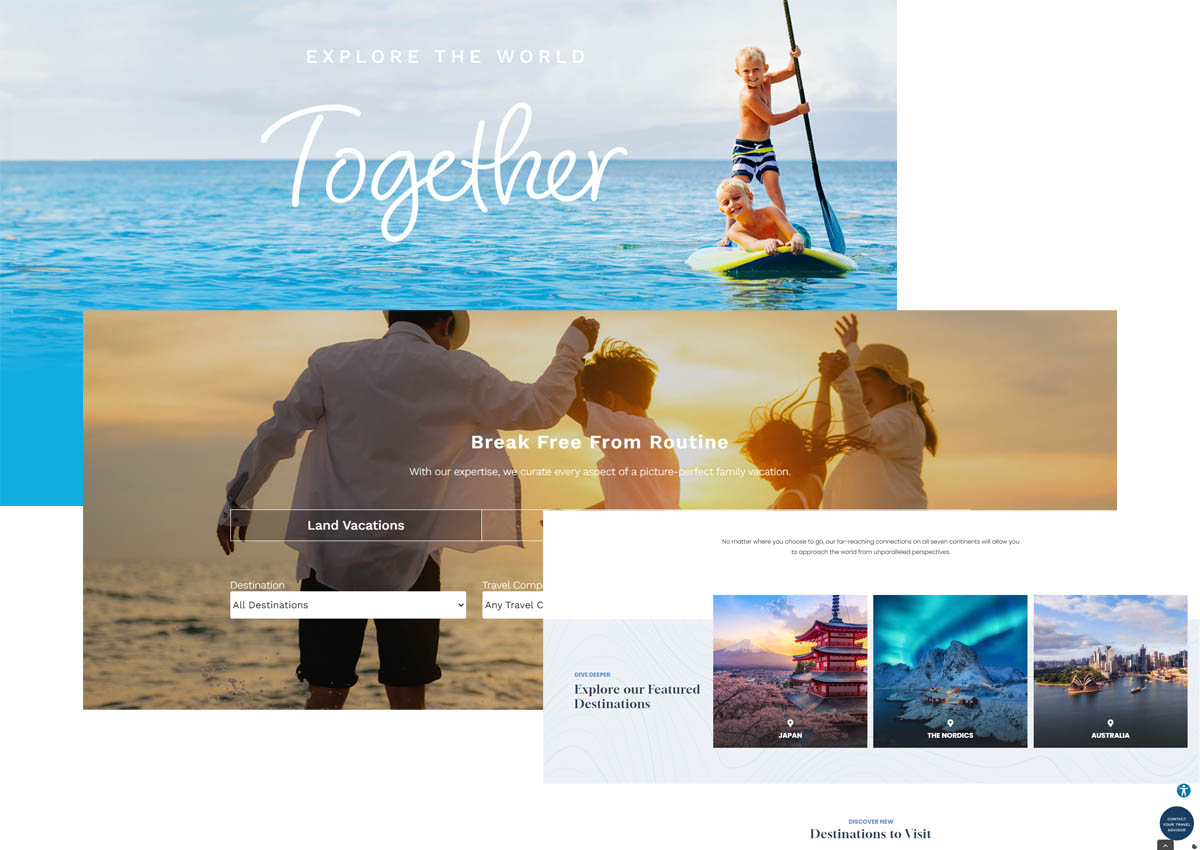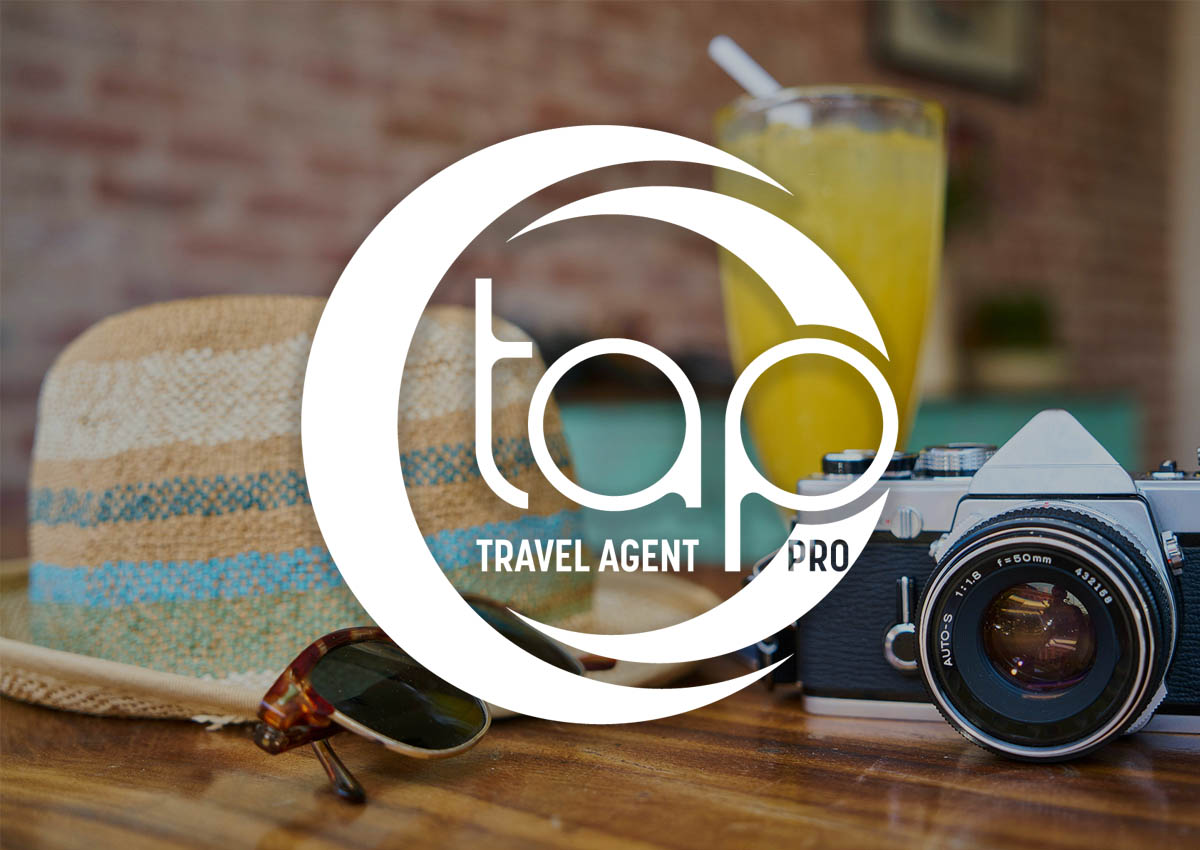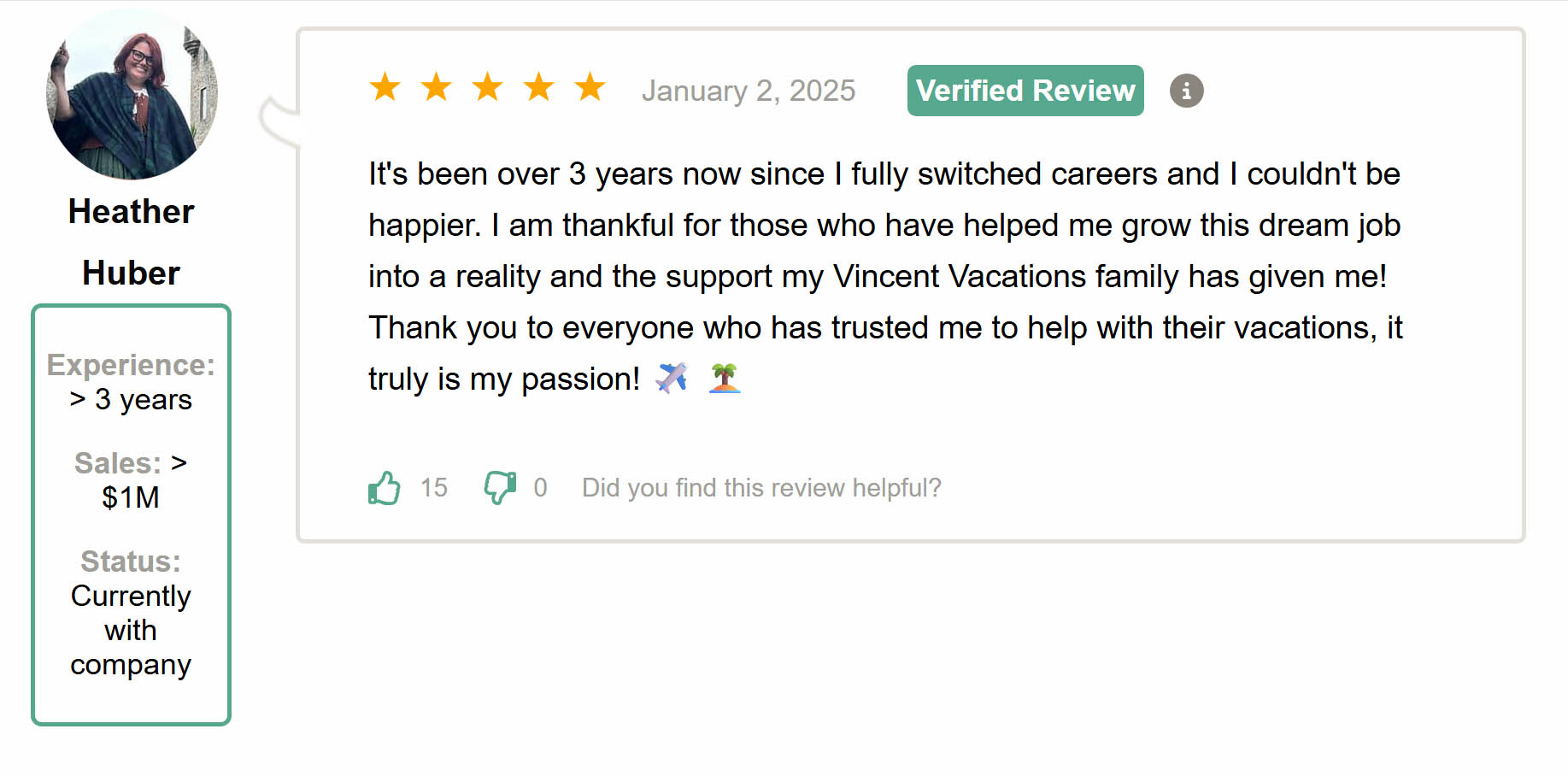Category :
Client Relations & SalesSales 101 for New Travel Agents and a Refresher for Experienced Agents
To learn more techniques and how to create and grow your own travel business, sign-up to become a member today!

- Unlock your potential and boost your travel sales by mastering proven techniques.
- Join 'Vincent Vacations' for exclusive training and resources to excel in the travel industry.
- Build lasting client relationships and increase your revenue with our expert guidance.
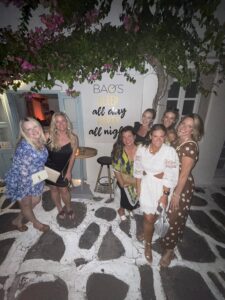
In this article, we’re going to cover an in depth look at improving the sales process followed by travel agents. No matter your niche or experience, this is a great overview of what it takes to be successful in travel, focusing on the ins and outs of sales.
Interested in learning more about sales as a travel agent? Check out our other articles on sales:
- Sales Techniques & Confidence for Travel Agents
- New Client Consultation and Sales Tips
- Sales Tips for Working with New Clients
- Sales Tips to Elevate Your Travel Business
- The 7 most important "Fundamentals of Sales Success" when working with clients
- Client Personality Types And Sales
1. Introduction to Sales in the Travel Industry
- Importance of the sales process in travel
- Similarities between selling different products and services
- Tips for mastering travel sales
2. The Path to Success
- Why mindset matters in sales
- Finding your “why” and developing an elevator pitch
- Overcoming negative sales stereotypes
3. The Sales Process: A Step-by-Step Guide
- Step 1: Meet and Greet
- Professionalism and first impressions
- Establishing credibility and why clients should choose you
- Step 2: Qualifying the Client
- Asking the right questions (examples included)
- Avoiding assumptions and understanding client needs
- Step 3: Research and Fact-Finding
- Tools and resources for researching vacations
- Using vendor tools, webinars, and personal knowledge
- Step 4: Presenting the Offer
- Building value before discussing price
- Visual aids: Using videos, photos, and itineraries
- Providing clear pricing details (inclusions and exclusions)
- Step 5: Closing the Sale
- Asking for the sale and creating urgency
- Overcoming common objections (price, urgency, trust)
4. Mindset for Sales Success
- The importance of positivity and learning from mistakes
- Setting realistic goals: Revenue and learning goals
- Building confidence and avoiding sales from a place of fear
5. Building Expertise
- The role of product knowledge in closing sales
- Ways to gain knowledge: Vendor training, FAM trips, webinars
- Finding and focusing on a niche in travel (e.g., luxury cruises, group travel)
6. Creating Urgency
- How to create urgency without pressure
- Examples of how scarcity (e.g., limited cabins) can drive decisions
7. Handling Objections
- Common objections (price, decision delay, lack of trust)
- How to ask follow-up questions and get to the root of the objection
- The importance of persistence and structured follow-ups
8. The Power of Follow-Up
- Effective strategies for following up with clients
- The importance of multiple contacts (5-touch follow-up strategy)
- How consistent communication increases sales
9. Leveraging Personal Travel for Sales
- How to use personal travel experiences to build credibility
- Sharing stories and photos from trips to engage clients
- Turning personal travel into research and training
10. Post-Sale Opportunities
- Selling ancillary products (insurance, excursions, pre/post-hotel)
- Leveraging group space for additional sales
- Importance of post-trip follow-ups for future business
11. Final Tips and Tricks
- Ask for referrals from satisfied clients
- Ensuring all details (paperwork, check-ins) are handled smoothly
- Building long-term client relationships through excellent service
12. Conclusion
- Recap of key points
- Encouragement for new travel agents to embrace the sales process
- Final thoughts on the road to success
1. Introduction to Sales in the Travel Industry
The Importance of the Sales Process in Travel
The sales process is the lifeblood of any travel business. Whether you're selling luxury cruises, family vacations, or adventure tours, understanding how to guide a potential client from inquiry to purchase is essential. "In sales, the process is the same. The only difference is the products that you're selling". This means that mastering the process is key, no matter what kind of travel service you're offering.
At the heart of this process is understanding that sales is about more than just the transaction. It’s about building relationships, providing value, and positioning yourself as a trusted advisor. As a travel agent, you’re not just selling vacations—you’re selling experiences, memories, and peace of mind.
Similarities Between Selling Different Products and Services
Whether you’re selling a cruise or a home, the fundamental principles of sales remain consistent across industries. "Whether you're selling widgets, cruises, or houses, the process remains the same".
Here are some universal aspects of sales:
- Building Trust: Clients need to trust you before they’ll make a purchase.
- Identifying Needs: Discovering what the client is looking for (e.g., relaxation, adventure) is critical.
- Presenting the Solution: Show clients how your product (or vacation) meets their specific needs.
- Closing the Sale: Asking for the sale with confidence, without being pushy.
This is why sales skills are transferable. If you can master the art of selling one product, you can sell anything—even travel.
Tips for Mastering Travel Sales
This article aims to provide new travel agents with actionable tips and techniques to help them:
- Effectively market themselves and their services
- Build confidence in the sales process
- Turn inquiries into bookings
- Navigate common challenges, such as clients booking elsewhere after receiving quotes
By learning how to present value, handle objections, and close deals, you’ll be equipped to convert prospective clients into loyal, repeat customers. “Selling is not about being pushy or slimy. It’s about providing information so clients can make an informed decision".
Through practical examples and proven strategies, this guide will empower you to elevate your travel business and master the art of sales in the travel industry. Join Vincent Vacations
2. The Path to Success
Why Mindset Matters in Sales
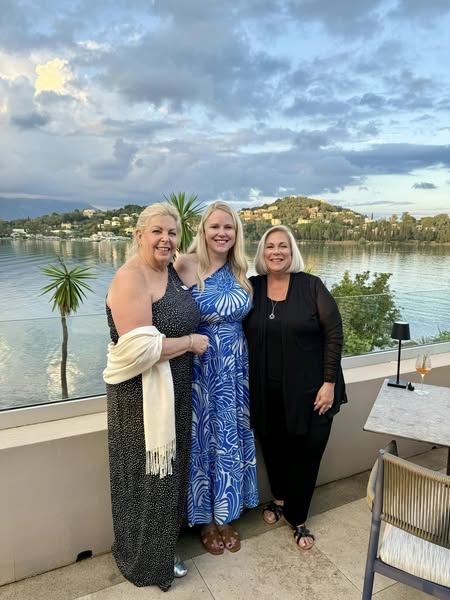
Success in sales begins with the right mindset. As a new travel agent, your mindset can either propel you forward or hold you back. The mindset you bring to the table will directly impact your success: "You have to believe in sales, or this will never work for you. And you have to believe in yourself".
Sales is not about being aggressive or pushing clients to buy. Instead, it’s about being confident, knowledgeable, and offering value. Here’s why having the right mindset is essential:
- Confidence attracts clients: Clients are more likely to trust and buy from a confident advisor who knows the value of their service.
- Positivity leads to results: Selling from a place of positivity and enthusiasm helps foster trust and build relationships.
- Learning from mistakes: No one is perfect, especially when starting out. Don’t be afraid to make mistakes. That’s how you learn.
If you're in a negative mindset—perhaps frustrated or desperate to close a deal—it will reflect in your interactions, and clients will pick up on it. Positivity and persistence are key.
Finding Your “Why” and Developing an Elevator Pitch
One of the most important aspects of successful sales is knowing your personal motivation—your "why." This is the driving force behind your decision to become a travel agent, and it forms the foundation of your passion and purpose in sales.
"What is your why? It’s just a statement or purpose that describes why you do the work you do. What is the reason you decided to become a travel agent?". Most travel agents are driven by their love of travel, a desire to help others experience the world, or a passion for a specific type of travel, like cruising.
Here’s how you can clarify your “why”:
- Reflect on why you chose to enter the travel industry.
- Identify what excites you most about helping others travel.
- Write a brief, compelling statement that explains your passion to clients.
Once you know your "why," it's time to develop an elevator pitch—a concise, one-minute explanation of who you are and why you do what you do. This helps establish a strong first impression with clients.
For example, you could say: “I became a travel agent because I’m passionate about helping people discover the joy of cruising. I’ve been on over 15 cruises myself, and I love sharing my knowledge and experiences to help clients plan unforgettable vacations.”
Your elevator pitch should convey your passion, knowledge, and desire to serve your clients.
Overcoming Negative Sales Stereotypes
Many people associate sales with pushy, aggressive tactics — “slimy, slippery used-car salesman” stereotype. Unfortunately, this negative perception can make some new agents hesitant to embrace sales. However, travel agents are far from that image.
Travel sales is about being an advisor, not a salesperson. "Salespeople are giving you lots of information so that you can make an informed decision". Here are a few ways to overcome negative sales stereotypes:
- Educate your clients: Provide them with valuable, accurate information, helping them feel confident in their decision-making process.
- Build trust: By being genuine, knowledgeable, and transparent, you’ll differentiate yourself from stereotypical “pushy” salespeople.
- Stay positive and professional: A positive attitude and professional demeanor go a long way in demonstrating that you are there to help, not pressure.
It’s important to remember that as a travel agent, your goal is to offer expert advice and assistance. You’re not just making a sale—you’re guiding clients toward an enjoyable, stress-free vacation. Join Vincent Vacations
3. The Sales Process: A Step-by-Step Guide
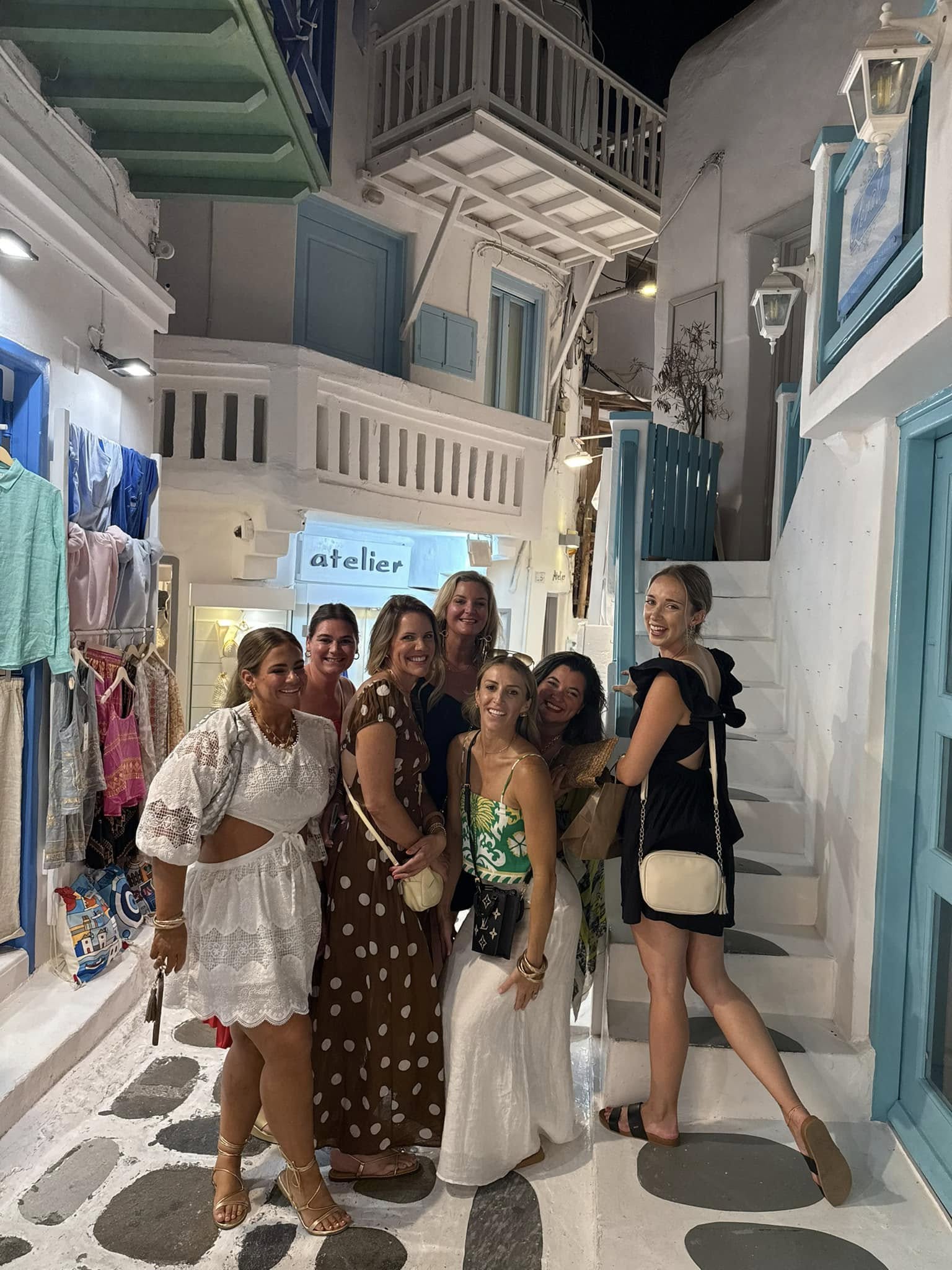
Mastering the sales process is essential for turning prospects into loyal clients. This step-by-step guide will walk you through the key stages of the sales journey, from the first conversation to closing the deal.
Step 1: Meet and Greet
Professionalism and First Impressions
First impressions matter. Whether you're meeting a client in person or talking over the phone, professionalism is key. “If you're meeting somebody face-to-face, can you not show up in shorts and a tank top and flip-flops? Show up looking professional because that's the first thing”. Even if it’s a phone conversation, your tone, enthusiasm, and clarity will set the tone for your relationship with the client.
Establishing Credibility and Why Clients Should Choose You
Within the first few moments of meeting a client, it’s crucial to establish your credibility. Why should they choose you over another travel agent or an online booking site? This is where your "why" and elevator pitch come in. Your passion and expertise are what set you apart, and you need to communicate that clearly from the outset. "It's your job to explain why you do what you do".
A simple, concise introduction such as: “I specialize in creating personalized cruise vacations, offering expert advice and exclusive deals that you won’t find online.” will help clients understand the unique value you bring.
Step 2: Qualifying the Client
Asking the Right Questions
Qualifying is a vital step in the sales process. Asking the right questions helps you understand the client’s needs and preferences, which allows you to present the best options. "If you don't ask these questions, you're assuming, and you should never assume in sales".
Some key qualifying questions include:
- What was the best trip you’ve ever taken and why?
- Is there anything you wish had been handled differently on your previous vacations?
- Have you received any other price quotes for this trip?
- What type of budget do you have, and how flexible are you?
These open-ended questions help you understand what your client values most in a vacation and any potential concerns they may have.
Avoiding Assumptions and Understanding Client Needs
Never assume that you know what the client wants. Even if they provide a specific request, it’s important to dig deeper. For example, a client may ask for a family-friendly resort, but by asking questions, you might discover they actually prefer an adults-only experience. “The last thing you want to do is take a client who wants relaxation and stick them on a trip full of kids”.
Step 3: Research and Fact-Finding
Tools and Resources for Researching Vacations
Once you’ve qualified the client, it’s time to do your research. This step involves gathering all the information needed to present the best options for your client. We suggest a range of tools to help with research:
- Vendor tools and portals: These provide up-to-date pricing, itineraries, and availability.
- Webinars and online training: "There are thousands of ways to build knowledge in this industry." Use vendor webinars, training programs, and recorded sessions to expand your expertise.
- Personal knowledge: Leverage your own experiences from personal travel, FAM trips, and ship inspections.
Using Vendor Tools, Webinars, and Personal Knowledge
Vendor tools and webinars allow you to gather detailed information, such as cabin availability, promotions, and special offers. For example, if a client is interested in a cruise, you can check deck plans, cabin details, and promotions via cruise portals. Adding personal insights from your travels or training sessions can make your recommendations even more impactful.
Step 4: Presenting the Offer
Building Value Before Discussing Price
When presenting the offer, it’s important to build value before mentioning the price. You shouldn’t rush into price discussions right away: "Don’t just spit out a price. What does that price include? What does it exclude?". By explaining the benefits of the vacation, such as the inclusions (e.g., free drink packages, Wi-Fi, or excursions), you increase the perceived value of the offer.
Visual Aids: Using Videos, Photos, and Itineraries
Visual aids are powerful tools in travel sales. Providing images of the destination, ship, or resort, as well as sample itineraries, helps clients visualize their trip. "It’s the visualization that’s really important. To see that beautiful, clear blue water…really paints that picture". Include links to promotional videos or pictures in your emails or during conversations to further engage your client.
Providing Clear Pricing Details (Inclusions and Exclusions)
When it comes to price, be transparent. Break down the total cost to show what’s included (e.g., taxes, gratuities, excursions) and what isn’t. For example, "The price includes unlimited food, drinks, and entertainment, but it does not cover gratuities or specialty dining". This clarity helps prevent misunderstandings and builds trust with your client.
Step 5: Closing the Sale
Asking for the Sale and Creating Urgency
Once you’ve presented the offer and answered any questions, it’s time to ask for the sale. "A lot of people don’t even ask for the sale". After explaining the value of the vacation, use a clear call to action: “The deposit is $250 per person. Would you like to go ahead and book that today?”
Creating urgency is also essential. You can highlight limited availability or an expiring promotion: "There are only three cabins left at this price, and the promotion expires in two days". This encourages the client to make a decision sooner rather than later. Join Vincent Vacations
Overcoming Common Objections (Price, Urgency, Trust)
Fear 1: Price is too high?
Suggest alternative options, such as a shorter trip or a different room category. "What if we looked at an ocean-view cabin instead of a balcony?".
Fear 2: Not enough urgency?
Use expiring promotions or limited availability to create urgency. "This rate is only available for the next three days, and cabins are selling out quickly".
Fear 3: Lack of trust?
Building trust is essential. Remind the client of your credibility and the company’s reputation. Highlight your company's history: "We've been in business since 2013 and are ranked among the top travel agencies in the country".
By addressing objections calmly and confidently, you can turn potential no’s into yeses.
4. Mindset for Sales Success
Become a Travel Agent: Unleash Your Full Potential
Ready for a career that's as fulfilling as it is rewarding? Becoming a travel agent with Vincent Vacations means building a business around your passion for travel.
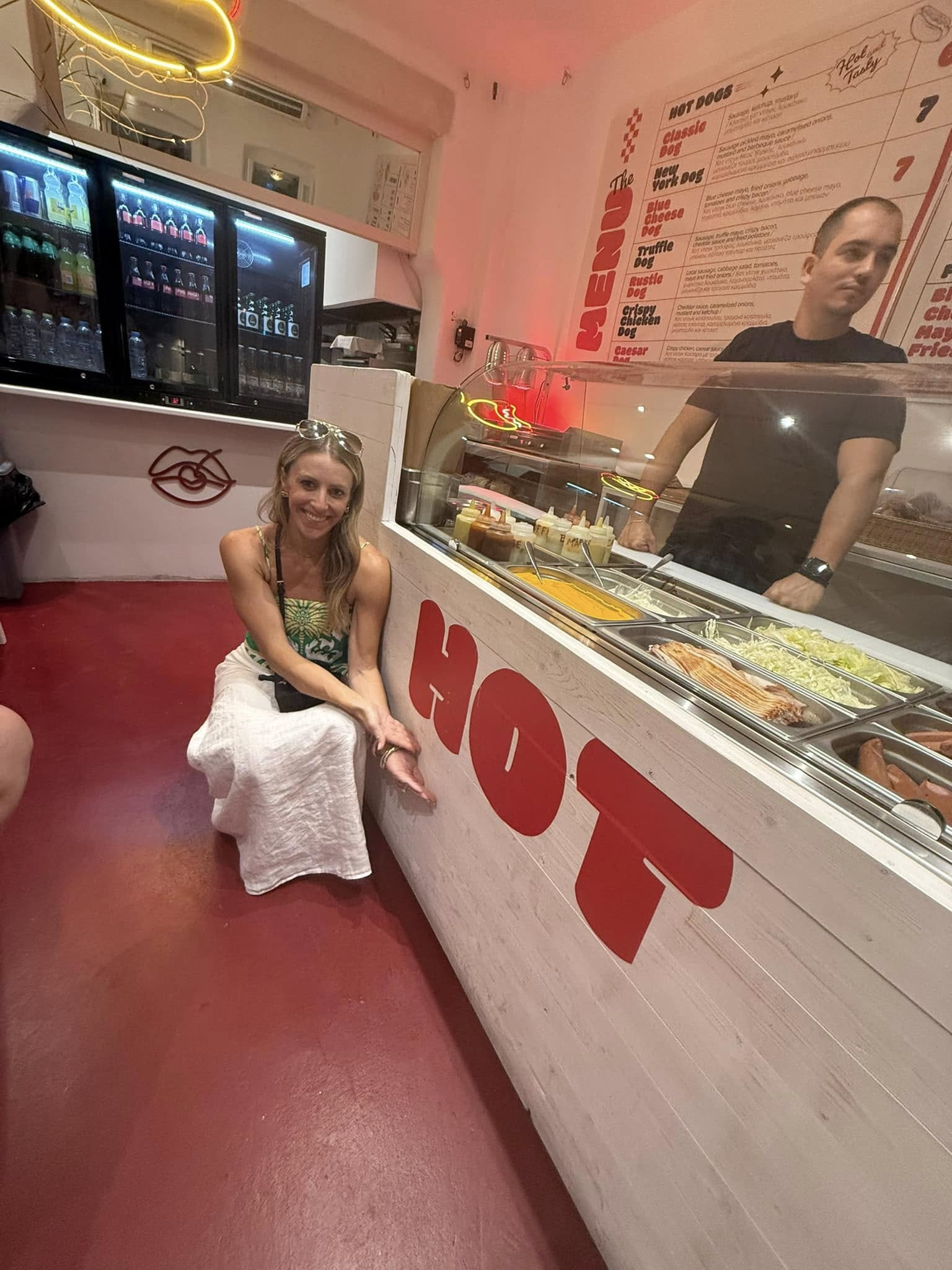
Your mindset is one of the most critical factors in determining your success as a travel agent. A positive attitude, realistic goal-setting, and the ability to learn from your mistakes can help you thrive in the competitive world of travel sales. This section explores how the right mindset can lead to long-term success.
Positivity
Approach clients with enthusiasm and build trust. Clients sense frustration, so stay positive.
Realistic Goals
Set achievable revenue and learning goals to stay motivated. Avoid unrealistic targets that lead to discouragement.
Confidence
Believe in your product and ability. Avoid selling from fear, which leads to pushiness. Focus on helping clients.
The Importance of Positivity and Learning from Mistakes
Positivity is a powerful tool in sales. When you approach clients with enthusiasm and a positive attitude, it helps build trust and rapport. It's important to stay positive, saying, "If you're in a very negative frame of mind, I suggest you do not try to sell somebody that day". Clients can sense when you're frustrated or desperate, which can make them hesitant to book with you. On the other hand, a positive mindset projects confidence and trustworthiness.
Mistakes are inevitable, especially when you’re starting out, but they are also opportunities for growth. "Failure can lead to success. It's learning the principles of how you didn’t close that sale. So, write those down—what didn’t I do? What did that person say?". Analyzing your mistakes will help you improve your approach and avoid repeating the same errors. Every misstep is a chance to refine your strategy and grow as a salesperson.
Setting Realistic Goals: Revenue and Learning Goals
Goal-setting is crucial for maintaining focus and motivation, but your goals need to be realistic to keep you from getting discouraged. "Realistic goals are very important. If they’re unattainable, I guarantee you’re going to give up pretty quickly". Start by setting achievable targets that push you but are within reach.
There are two main types of goals you should focus on:
Revenue Goals: Start with small, achievable revenue goals and work your way up. For example, "In my first year, I would like to sell $50,000 to $100,000 in travel". This allows you to build confidence and track your progress. Avoid unrealistic goals like aiming for $1 million in your first year, which could lead to frustration if you fall short.
Learning Goals: In addition to revenue goals, set learning objectives to increase your expertise. "I want to complete five different cruise lines’ universities in one year" is an example of a solid learning goal. Gaining certifications or completing online courses will expand your knowledge and make you more valuable to your clients.
By balancing both revenue and learning goals, you ensure continuous improvement in both your sales skills and product knowledge.
Building Confidence and Avoiding Sales from a Place of Fear
Confidence is key in sales. Clients want to work with someone who believes in their product and their ability to deliver a great experience. We emphasize the importance of confidence, stating, "You have to believe in yourself, or this will never work for you". Building confidence comes from understanding your products, knowing your clients’ needs, and being prepared.
One of the biggest mistakes new agents make is selling from a place of fear. This happens when you are afraid of losing a sale, which can lead to being overly aggressive or pushy. "Selling from a place of fear means you become really pushy because you are fearful of losing the sale. And that is the first big mistake you will make".
To avoid this, remember the following tips:
- Focus on helping, not selling: Your job is to guide clients toward the best vacation for them, not to pressure them into buying something they’re not ready for.
- Detach from the outcome: While closing the sale is the goal, don’t let desperation show. Trust the process, and know that not every lead will convert immediately.
- Confidence over fear: Stay calm, be patient, and give your clients the space they need to make a decision. If you’ve done your job well, the sale will come naturally.
5. Building Expertise
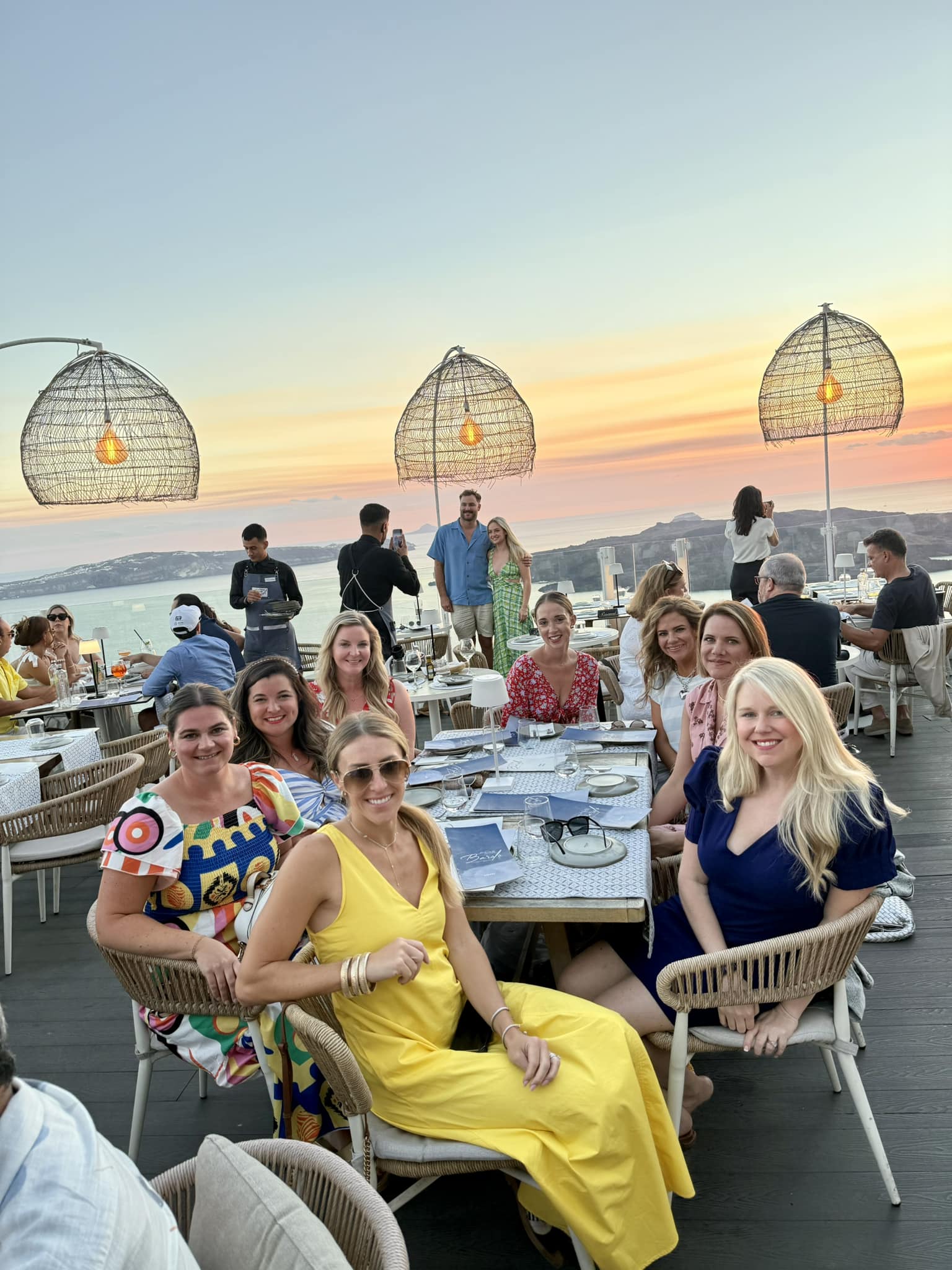
Becoming an expert in travel sales is about more than just understanding the basics of booking. Your product knowledge is one of the most valuable assets in closing sales and building long-term relationships with clients. By continuously expanding your knowledge through various resources, you can position yourself as a trusted advisor who clients turn to for expert advice.
Vendor Training
Complete online courses offered by vendors to learn the ins and outs of their products.
FAM Trips
Experience products firsthand through familiarization trips offered by cruise lines and resorts.
Webinars
Stay updated with the latest industry developments through flexible, on-demand webinars.
The Role of Product Knowledge in Closing Sales
When it comes to travel sales, product knowledge is the key to earning your clients' trust. "Knowledge and expertise is truly the key component in sales, because you want to buy from somebody who has that knowledge base". Clients rely on you not only to get the best price but also to steer them away from potential pitfalls they might encounter if they booked on their own.
Without a deep understanding of the products you’re selling—whether it’s a cruise line or a luxury resort—you risk losing credibility. Clients may doubt your recommendations, especially if they are seasoned travelers. To avoid this, it’s important to continually build and refine your knowledge so that you can confidently answer any questions they may have.
Ways to Gain Knowledge: Vendor Training, FAM Trips, Webinars
There are numerous ways to increase your expertise as a travel agent, all of which help you stay informed about the latest offerings and trends in the travel industry. We like to mention several effective methods, including vendor training, familiarization (FAM) trips, and webinars.
Here’s a breakdown of each:
Vendor Training Programs
Most vendors offer online training courses designed to help travel agents learn the ins and outs of their products. For example, you can become a specialist in a particular cruise line by completing certification programs like Princess’ Commodore level or Royal Caribbean University. We like to highlight this point: "There are tons of online training programs...all the vendors have some type of training program".FAM (Familiarization) Trips
FAM trips allow travel agents to experience products firsthand. These trips, often offered by cruise lines, resorts, and destination management companies, provide valuable insight into the experiences you’ll be selling to your clients. "There are tons of opportunities for FAM trips. Another great way to learn." By immersing yourself in the product, you’ll be better equipped to describe it accurately and persuasively to clients.Webinars and Recorded Training
Webinars offer a flexible, on-demand way to learn about various travel products. "We also have our own webinar channel that you can go back and watch on demand." Whether you’re focusing on luxury cruises or all-inclusive resorts, webinars help keep you up to date with the latest industry developments. They’re especially useful for agents who may not have time to attend live trainings.
Finding and Focusing on a Niche in Travel
Becoming an expert in one or two specific areas of travel can set you apart from other agents. Instead of trying to sell everything, narrowing your focus to a niche allows you to gain in-depth knowledge and become the go-to expert in that field. Focus on particular types of travel, such as contemporary or luxury cruises: "At first, become an expert in one brand and focus your sales on that".
Here are a few steps to finding your niche:
- Assess your interests: What type of travel excites you the most? If you love luxury, perhaps you could specialize in upscale experiences like Silversea Cruises or high-end all-inclusive resorts.
- Analyze your client base: Consider the type of clients you attract or want to target. Do they prefer family vacations, destination weddings, or adventure travel? Align your niche with their preferences.
- Focus on in-demand markets: Look at trends in the industry. Niche markets such as group travel, luxury cruises, or destination weddings often present lucrative opportunities. "Finding that niche is really important because it’s going to take you quite some time to get great knowledge amongst all the brands".
Conclusion: Expertise Drives Success
By building your expertise through continuous learning, specializing in a niche, and leveraging personal experiences, you’ll position yourself as a knowledgeable and trusted travel advisor. This deep knowledge not only helps you close more sales but also keeps clients coming back to you for future bookings. "That expertise, that knowledge is going to make that client come back to you over and over again".
6. Creating Urgency
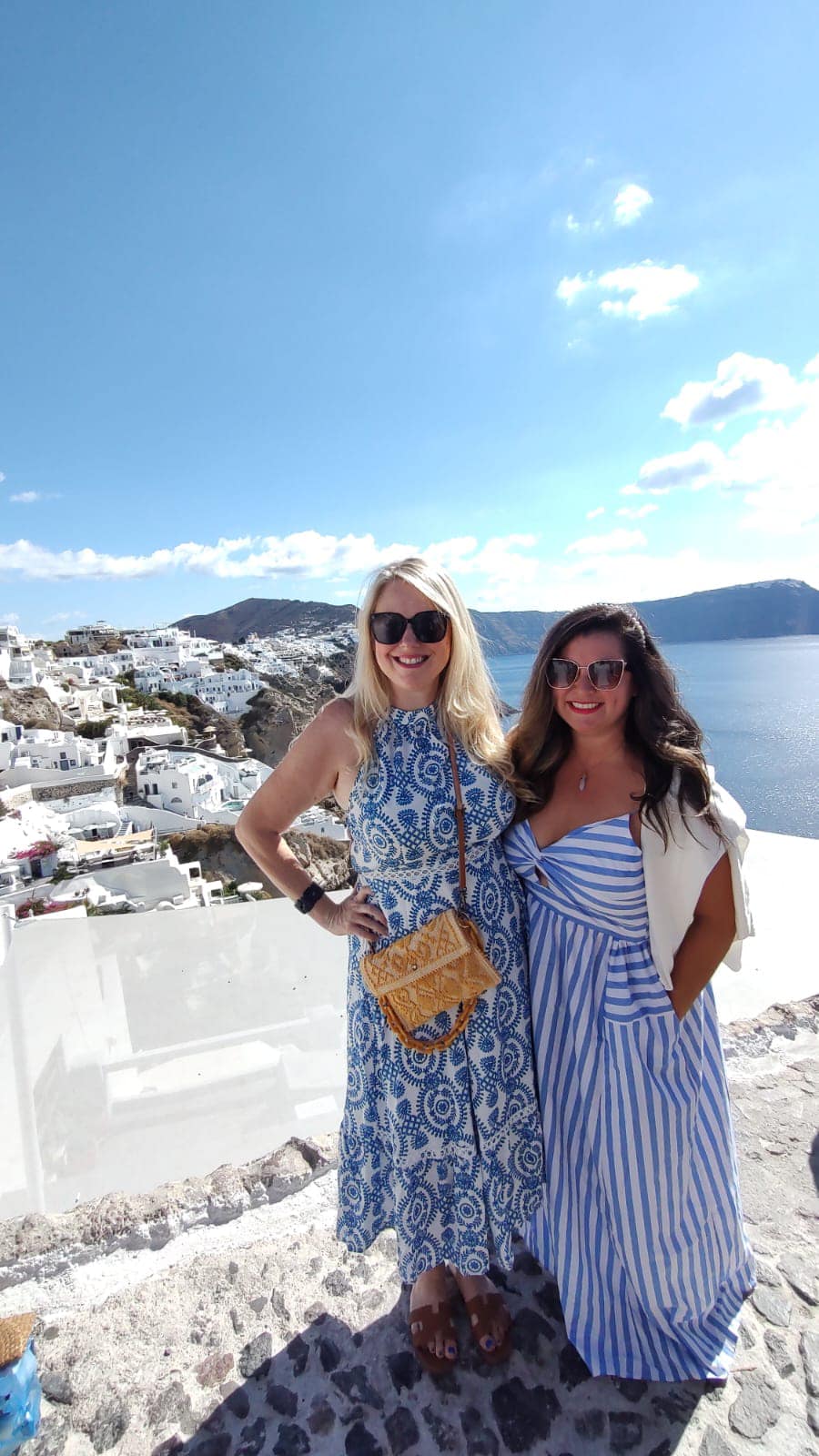
In travel sales, creating a sense of urgency can be a powerful tool to encourage clients to make decisions quickly without feeling pressured. When done right, urgency highlights the benefits of acting sooner rather than later, especially when availability is limited or special offers are set to expire. This section explains how to create urgency in a natural, effective way, and how scarcity can drive your clients to take action.
How to Create Urgency Without Pressure
Creating urgency without applying too much pressure is about presenting the facts and letting the client understand that acting sooner can save them money or secure a better deal. It’s important to remember that while urgency is key, clients should never feel manipulated or pushed into making a decision. "If you give somebody forever to think about it, they're going to take forever to think about it".
Here are a few strategies to create urgency in a natural way:
- Highlight time-sensitive promotions: If a deal is about to expire, let your client know. For example, you can say, “This promotion ends in three days, and after that, the price may go up.” Present it as a way for them to save money, rather than a high-pressure sales tactic.
- Emphasize limited availability: If there are only a few rooms or cabins left at a certain price point, inform your client. This isn’t to rush them, but to ensure they don’t miss out on an opportunity. "Let them know that there are only three cabins left at that price, and they could be gone tomorrow".
- Present deadlines as opportunities: Instead of focusing on the negative aspect of missing a deal, frame it as an opportunity to take advantage of a great offer. For example, "The group pricing you’re getting is only available for the next 10 days. This is a great chance to lock in a lower rate".
The key is to use urgency as a motivator rather than a pressure point, guiding clients to make informed decisions while understanding the value of acting quickly. Join Vincent Vacations
Examples of How Scarcity Can Drive Decisions
Scarcity is one of the most effective tools for creating urgency, as
Learn more about this by signing up as a member, today! Vincent Vacations Application Form.
To learn more techniques and how to grow your travel business, read more on our Articles page.



